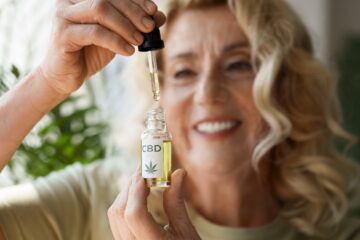Green tea, celebrated for its numerous health benefits, is a popular beverage consumed worldwide. One of the key components that contribute to its unique properties is caffeine. Caffeine, a natural stimulant, is present in various beverages, including coffee, black tea, and green tea. However, “How much caffeine is in green tea?” is a topic of considerable interest and sometimes confusion. This article delves into the details of how much caffeine is in green tea, examining various factors that influence its content and comparing it to other common sources of caffeine.

Understanding Caffeine
Caffeine is a central nervous system stimulant that can help improve focus, alertness, and energy levels. It is naturally found in coffee beans, tea leaves, cacao beans, and other plants. Once consumed, caffeine is absorbed into the bloodstream and travels to the brain, where it blocks the inhibitory neurotransmitter adenosine. This action leads to increased neuronal firing and the release of other neurotransmitters like dopamine and norepinephrine, which further enhance mood and cognitive function.
Green Tea and Its Caffeine Content
Green tea is made from the leaves of the Camellia sinensis plant. Unlike black tea, green tea is minimally oxidized, which helps preserve its delicate flavor and color. The caffeine content in green tea can vary significantly based on several factors:
- Type of Green Tea: Different varieties of green tea contain varying amounts of caffeine. For instance, matcha, a powdered form of green tea, typically has higher caffeine levels compared to other types like sencha or gyokuro.
- Growing Conditions: The environment in which the tea plants are grown, including factors like soil quality, altitude, and climate, can influence the caffeine content.
- Harvesting Time: Tea leaves harvested earlier in the season tend to have higher caffeine levels compared to those picked later.
- Processing Methods: The way the tea leaves are processed after harvesting, such as steaming, drying, and rolling, can also affect the caffeine content.
- Brewing Methods: The amount of caffeine extracted from green tea leaves during brewing depends on water temperature, steeping time, and the ratio of tea leaves to water.
How Much Caffeine is in Green Tea
On average, an 8-ounce (240-milliliter) cup of brewed green tea contains approximately 20-45 milligrams of caffeine. However, this range can vary widely. Here is a more detailed breakdown of caffeine content in different types of green tea:
- Matcha: 60-70 milligrams per 8-ounce serving
- Gyokuro: 35-50 milligrams per 8-ounce serving
- Sencha: 20-30 milligrams per 8-ounce serving
- Bancha: 10-20 milligrams per 8-ounce serving
- Genmaicha: 10-15 milligrams per 8-ounce serving
Comparison with Other Beverages
To put the caffeine content of green tea into perspective, let’s compare it with other common caffeinated beverages:
- Coffee: A typical 8-ounce cup of brewed coffee contains about 95 milligrams of caffeine, which is significantly higher than green tea.
- Black Tea: An 8-ounce cup of black tea contains about 40-70 milligrams of caffeine, generally higher than green tea but lower than coffee.
- Energy Drinks: These can contain anywhere from 50 to over 200 milligrams of caffeine per serving, depending on the brand and size.
- Soda: A 12-ounce can of cola typically contains 30-40 milligrams of caffeine.
Factors Affecting Caffeine Extraction During Brewing
The method of brewing green tea plays a crucial role in determining the final caffeine content of the beverage. Here are some factors that can influence caffeine extraction:
- Water Temperature: Higher water temperatures extract more caffeine from the tea leaves. Green tea is usually brewed at lower temperatures (160-180°F or 70-80°C) compared to black tea or coffee.
- Steeping Time: Longer steeping times allow more caffeine to be released into the water. However, over-steeping can also result in a bitter taste.
- Tea-to-Water Ratio: Using more tea leaves relative to water increases the caffeine concentration in the final brew.
- Leaf Size and Shape: Finer tea leaves, such as those in matcha, release caffeine more quickly than larger, whole leaves.
Health Benefits of Green Tea
While caffeine content is an important consideration, green tea is renowned for its health benefits, many of which are attributed to other compounds found in the leaves. These include:
- Antioxidants: Green tea is rich in catechins, a type of antioxidant that can help protect cells from damage and reduce inflammation.
- L-theanine: This amino acid found in green tea promotes relaxation and counteracts the stimulating effects of caffeine, providing a balanced energy boost.
- Polyphenols: These compounds have been shown to support heart health by improving blood vessel function and lowering cholesterol levels.
- Weight Management: Some studies suggest that green tea can boost metabolism and enhance fat burning, making it a popular choice for those looking to manage their weight.
Potential Side Effects of Caffeine in Green Tea
While moderate caffeine consumption is generally considered safe for most people, excessive intake can lead to various side effects, such as:
- Insomnia: Consuming high amounts of caffeine, especially later in the day, can interfere with sleep known as insomnia disease.
- Anxiety: Caffeine can increase anxiety levels, particularly in individuals sensitive to its effects.
- Digestive Issues: High caffeine intake can lead to stomach upset and acid reflux in some people.
- Dependence: Regular consumption of caffeine can lead to physical dependence and withdrawal symptoms, such as headaches and irritability, when intake is reduced.
Decaffeinated Green Tea
For those who are sensitive to caffeine or looking to reduce their intake, decaffeinated green tea is an option. The decaffeination process removes most of the caffeine from the tea leaves while retaining many of the beneficial compounds. Decaffeinated green tea typically contains less than 2 milligrams of caffeine per 8-ounce serving.
Conclusion
Green tea, with its moderate caffeine content, offers a unique balance of stimulation and relaxation. Its caffeine levels can vary based on numerous factors, including the type of green tea, growing conditions, harvesting time, processing methods, and brewing techniques. While green tea generally contains less caffeine than coffee and black tea, it still provides a gentle energy boost along with a host of health benefits. For those who are sensitive to caffeine or prefer to limit their intake, decaffeinated green tea is a suitable alternative. Understanding how much caffeine is in green tea allows individuals to make informed choices that align with their health goals and lifestyle preferences.
By appreciating the nuances of green tea and its caffeine content, one can fully enjoy this ancient beverage and its myriad of benefits.


